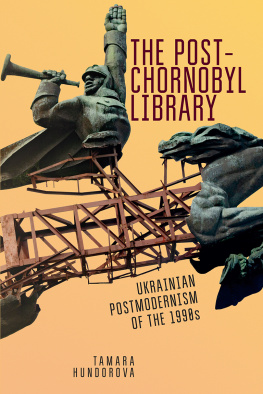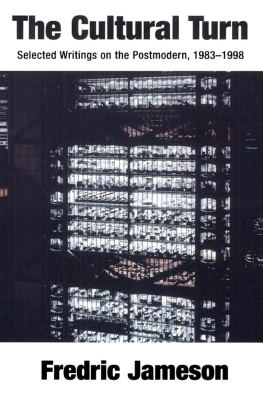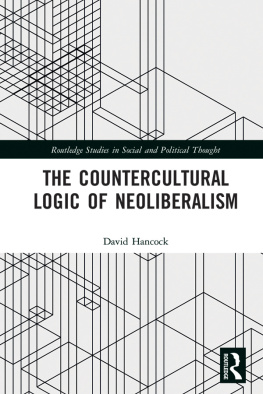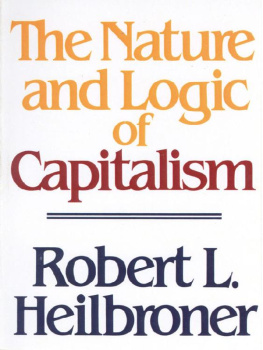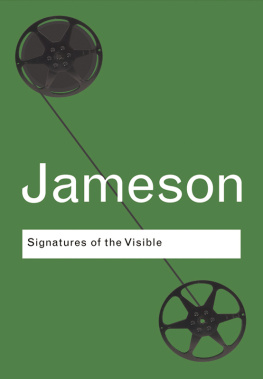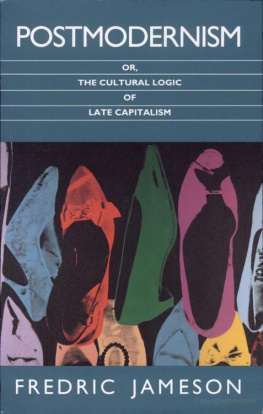Nealon - Post-Postmodernism: Or, the Cultural Logic of Just-in-Time Capitalism
Here you can read online Nealon - Post-Postmodernism: Or, the Cultural Logic of Just-in-Time Capitalism full text of the book (entire story) in english for free. Download pdf and epub, get meaning, cover and reviews about this ebook. year: 2012, publisher: Stanford University Press, genre: Romance novel. Description of the work, (preface) as well as reviews are available. Best literature library LitArk.com created for fans of good reading and offers a wide selection of genres:
Romance novel
Science fiction
Adventure
Detective
Science
History
Home and family
Prose
Art
Politics
Computer
Non-fiction
Religion
Business
Children
Humor
Choose a favorite category and find really read worthwhile books. Enjoy immersion in the world of imagination, feel the emotions of the characters or learn something new for yourself, make an fascinating discovery.

- Book:Post-Postmodernism: Or, the Cultural Logic of Just-in-Time Capitalism
- Author:
- Publisher:Stanford University Press
- Genre:
- Year:2012
- Rating:5 / 5
- Favourites:Add to favourites
- Your mark:
- 100
- 1
- 2
- 3
- 4
- 5
Post-Postmodernism: Or, the Cultural Logic of Just-in-Time Capitalism: summary, description and annotation
We offer to read an annotation, description, summary or preface (depends on what the author of the book "Post-Postmodernism: Or, the Cultural Logic of Just-in-Time Capitalism" wrote himself). If you haven't found the necessary information about the book — write in the comments, we will try to find it.
Nealon: author's other books
Who wrote Post-Postmodernism: Or, the Cultural Logic of Just-in-Time Capitalism? Find out the surname, the name of the author of the book and a list of all author's works by series.
Post-Postmodernism: Or, the Cultural Logic of Just-in-Time Capitalism — read online for free the complete book (whole text) full work
Below is the text of the book, divided by pages. System saving the place of the last page read, allows you to conveniently read the book "Post-Postmodernism: Or, the Cultural Logic of Just-in-Time Capitalism" online for free, without having to search again every time where you left off. Put a bookmark, and you can go to the page where you finished reading at any time.
Font size:
Interval:
Bookmark:
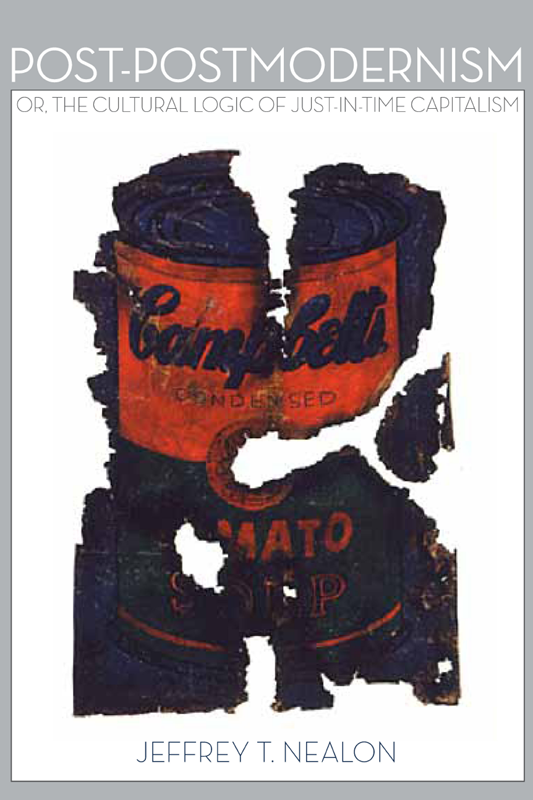
POST-POSTMODERNISM

or, The Cultural Logic of Just-in-Time Capitalism
Jeffrey T. Nealon
STANFORD UNIVERSITY PRESS
STANFORD, CALIFORNIA
Stanford University Press
Stanford, California
2012 by the Board of Trustees of the Leland Stanford Junior University. All rights reserved.
No part of this book may be reproduced or transmitted in any form or by any means, electronic or mechanical, including photocopying and recording, or in any information storage or retrieval system without the prior written permission of Stanford University Press.
Printed in the United States of America on acid-free, archival-quality paper
Library of Congress Cataloging-in-Publication Data
Nealon, Jeffrey T. (Jeffrey Thomas), author.
Post-postmodernism, or, The cultural logic of just-in-time capitalism / Jeffrey T. Nealon.
pages cm
Includes bibliographical references and index.
ISBN 978-0-8047-8144-2 (alk. paper)
ISBN 978-0-8047-8145-9 (pbk. : alk. paper)
ISBN 978-0-8047-8321-7 (ebook)
. CultureEconomic aspectsUnited States.. LiteratureHistory and criticismTheory, etc.. Post-postmodernismUnited States. I. Title. II. Title: The cultural logic of just-in-time capitalism.
HM.N 427 2012
'.dc
2011045584
Contents
Acknowledgments
As this book was written over an embarrassingly long time, it has incurred more debts than simple acknowledgments can hope to repay. First and foremost, Rich Doyle has helped me sort out, laugh off, and rethink all of this material in a way that makes me believe again in the productive politics of friendship. Gregg Lambert has likewise been there every step of the way, with just the right cocktail of encouragement and productive skepticism.
Id also like especially to thank Fredric Jameson, who (at a crucial turning point in this writing) graciously came up to State College for a few days to hang out and talk to my graduate seminar. He greatly sharpened my sense of this material, as well as the stakes and directionalities where it might lead, even though I doubt he agrees unequivocally with where Ive taken it.
Undoubtedly, many ideas populating these pages were stolen from the Penn State English Department theory reading groupRobert Caserio, Jonathan Eburne, Brian Lennon, and Janet Lyon. Indeed, the theft goes back to the earlier iteration of that group: Marco Abel, Tony Ceraso, Jeremiah Dyehouse, Elizabeth Mazzolini, John Muckelbauer, Dan Smith, and Evan Watkins. Who says it doesnt pay off to spend long hours at Zenos?
Along the way, I got a lot of help thinking about these topics from Mona Ali, Bruce Andrews, Charles Bernstein, Michael Brub, Marc Bousquet, Pascale-Anne Brault, Claire Colebrook, Frank Donoghue, Grant Farred, Gregg Flaxman, Henry Giroux, Cecil Giscombe, Ann and David Gunkel, Doug Henwood, Shannon Hoff, Caren Irr, Jane Juffer, Amitava Kumar, John Leavey, Rick Lee, Todd May, John McGowan, Jennifer Mensch, Michael Naas, Chris Nealon, Cary Nelson, Johanna Oksala, John Protevi, John Russon, Dennis Schmidt, Alan Schrift, Susan Searls-Giroux, and Cary Wolfe.
One of the great pleasures of the project was getting to know Emily-Jane Cohen from Stanford University Press. Thanks also to Tim Roberts and Cynthia Lindlof for the timely expertise they offered in getting the manuscript into print.
Prototypes of some of these chapters have appeared in the journals Rethinking Marxism, Parallax, Symploke, jac, Postmodern Culture, and Theory & Event; and a version of appeared in Carsten Strathausens edited collection, A Leftist Ontology? Thanks to those publications and their editors for so many helpful suggestions and so much encouragement along the way, as well as for permissions. Special thanks finally to Vitaly Komar for permission to use Post-Art #, Warhol as cover art.
But in the end, this book owes itself to Leisha, Bram, and Dashwho are the inspiration for everything herein despite having had to withstand a decade of dinner conversations on its topics. Like Charles Olsons Maximus, I have had to learn the simplest things / last. Which made for difficulties; but I have finally learned what matters, and I have my family to thank for that. It all started with a dice throw in Vegas, and its just intensified wild positivity from there. They prove every day that theres life in post-postmodernism.
Demo version limitation
SECTION 1
CULTURE AND ECONOMICS
CHAPTER 1
Post-Postmodernism
PERIODIZING THE 80S: THE CULTURAL LOGIC OF ECONOMIC PRIVATIZATION IN THE US
Any political philosophy must turn on the analysis of capitalism and the ways it has developed. GILLES DELEUZE, Negotiations
How Soon Is Now?
After the economic meltdown of fall 2008 , it may have seemed for a moment like the era of unbridled faith in free-market or neoliberal capitalism was waning. When the US government orchestrated huge bailouts of the private sector, it might have seemed logical that the slick era of small government and big business, born in the Reagan 1980 s and intensified through the Clinton s, was definitively over and that we were on the verge of a retooled era of mid-twentieth-century Keynesianism. When Paul Krugman can wonder out loud in the New York Times magazine, How Did Economists Get It So Wrong?, youd almost have to conclude that, more than a decade into the new millennium, 1980 s-style neoliberalism was soon to be a discredited thing of the past.
This of course turned out to be wishful thinking, or at least sadly mistakenneoliberal capitalism was temporarily discredited, maybe, but is hardly a thing of the past. In the wake of the bailouts, the budget and debt battles in the US were fought and won not by liberal Keynesians offering a government-backed New Deal ., but by free-market conservatives who take their neoliberal mantras directly from the 1980 s book of Reagan: Government is not the solution to our problems; government is the problem, as Reagan infamously put it in his 1981 inauguration speech. Likewise, what we saw in the financial meltdowns and the budget-cutting debates that followed were not really changes of course or swerves away from market dictates at allquite the contrary. What you see when you see a government bailout of private industries is not so much the beginning of a brave, new socialism, but simply the other shoe dropping: with the privatization of wealth on a massive scale comes the socialization of risk on an almost unthinkable scale, $. trillion of what amounts to success insurance loaned out to private companies in public, taxpayer funds. Ultimately, these bailouts were not the abandonment of free-market ideology, but simply the other face of the privatized, free-market coin weve become so familiar with since the 1980 s.
Indeed, it feels a lot like the 1980 s both economically and culturally these days. Even the fashion and entertainment segments of CNN are s saturated: the hottest new radio format is all s, with several stations having gone from the ratings cellar to number one in about the time it takes to play the extended dance remix of Tainted Love. On the fashion front, the runways and malls are filled with s-style fashionsI recently saw a designer-ripped T-shirt that said, somewhat confusedly, Kiss Me, Im Punk, and the skinny tie has made its inevitable comeback. All kinds of diverse media (from Iron and Wines post-postmodern cover of New Orders 1984 Love Vigilantes to Hollywood fare like
Font size:
Interval:
Bookmark:
Similar books «Post-Postmodernism: Or, the Cultural Logic of Just-in-Time Capitalism»
Look at similar books to Post-Postmodernism: Or, the Cultural Logic of Just-in-Time Capitalism. We have selected literature similar in name and meaning in the hope of providing readers with more options to find new, interesting, not yet read works.
Discussion, reviews of the book Post-Postmodernism: Or, the Cultural Logic of Just-in-Time Capitalism and just readers' own opinions. Leave your comments, write what you think about the work, its meaning or the main characters. Specify what exactly you liked and what you didn't like, and why you think so.

